When I saw our 2022 Summer Road Trip was going to take us through Louisville, I knew that a stop by the Slugger Museum & Factory would be a hit with our 5-year-old t-baller. Surprisingly, it was one of our family’s all-time favorite stops and definitely belongs on everyone’s adventure list.
World’s Largest Baseball Bat
What better to be greeted by on the way into the home of Louisville Slugger than the World’s Largest Baseball Bat? Certified by Guiness, it’s 120ft tall and weighs 68,000lbs. You’d think something so immense would be visible from blocks away. But it’s tucked into the entry such that it kind of catches you by surprise:)
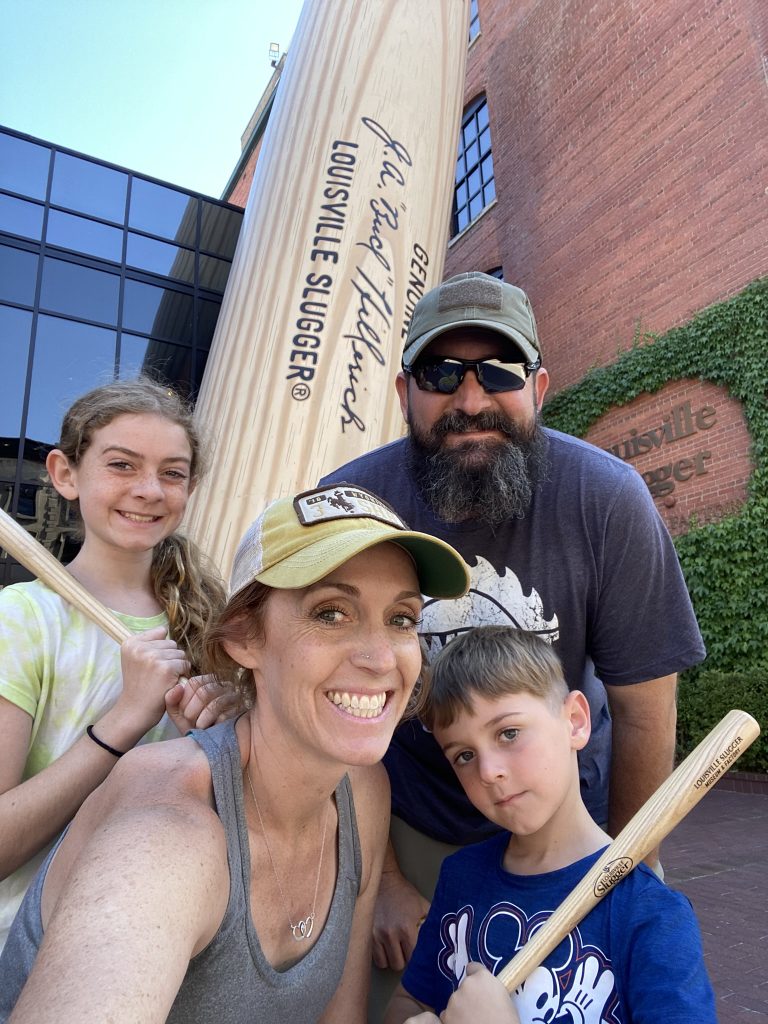
Museum is free, Tour is ticketed
The museum and tour are fabulously organized to hold the attention of baseball novices and hardcore enthusiasts. Since we were road tripping in, I didn’t pre-purchase our tickets and we secured a spot on the next tour. That being said, the place was SUPER busy, so I’d recommend snagging your tickets online if you know your timeline. The small retail area was packed with people ordering personalized bats and gear, much of which you can find online.
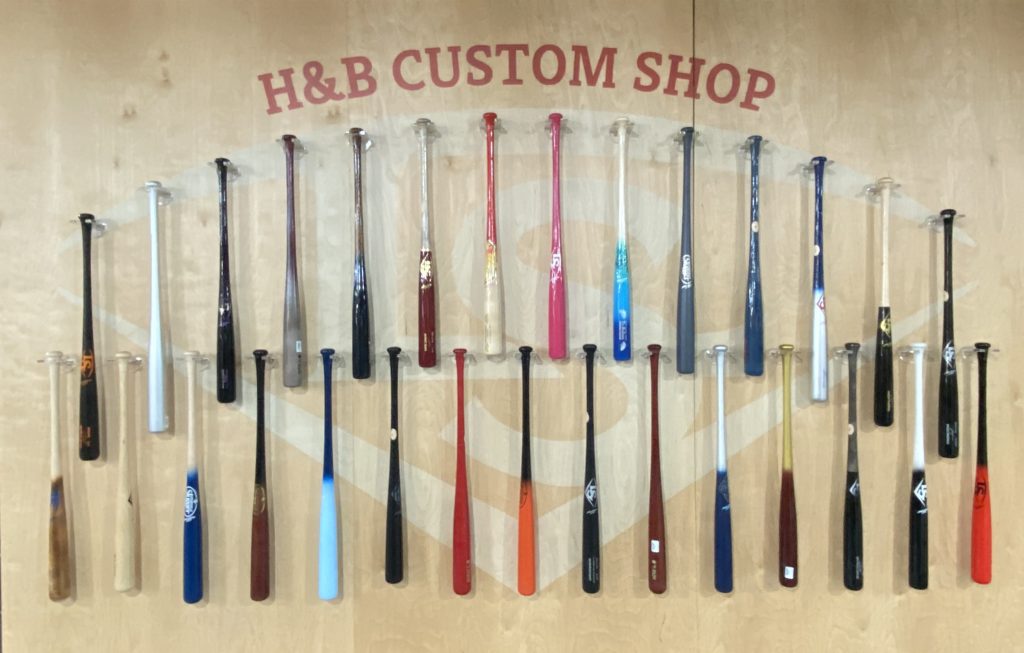
Sluggers weren’t even the company’s beginning
Founded in 1855 by J.F. Hillerich, the woodworking company’s original focus was railings, columns and most successfully, swinging butter churns. In 1884, Hillerich’s son Bud made a slump ending bat for hometown hero Pete “Louisville Slugger” browning. Much to his father’s chagrin, the baseball business began to boom.
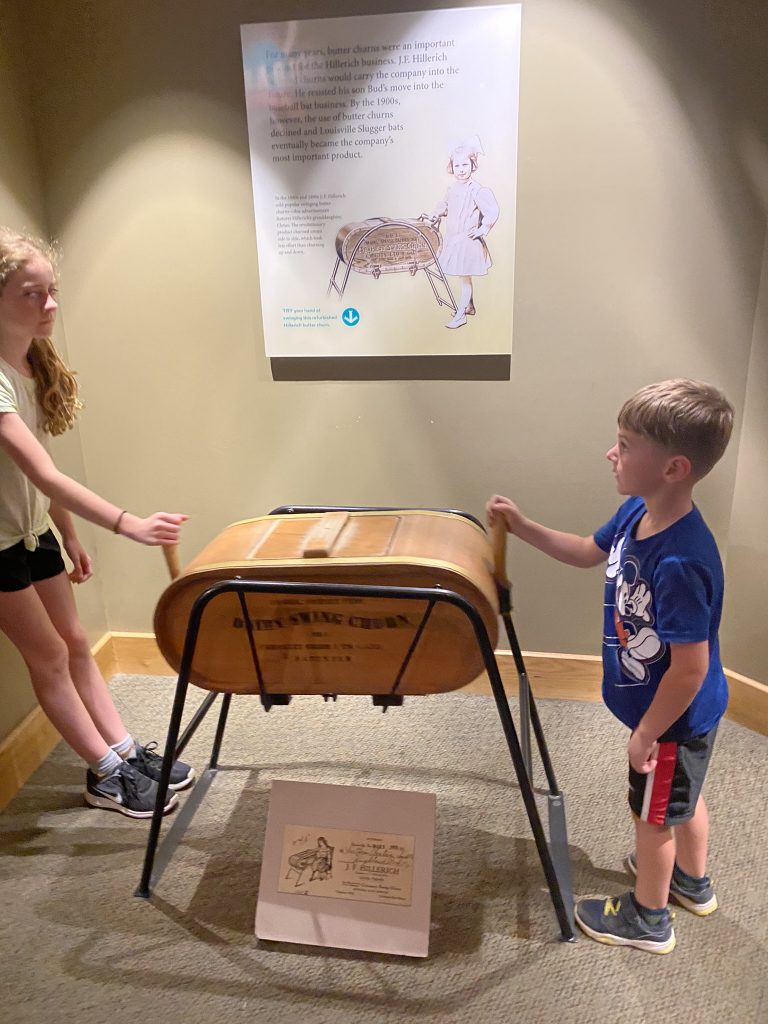
Bud’s popularity continued to grow, and after fully acquiring the company and a business partner, the Louisville Slugger became the most popular bat in the country. Displays abound at the museum showcasing the prolific players and their custom Louisville Sluggers. Babe Ruth notably stated that “all his records had been made with Louisville Sluggers”.
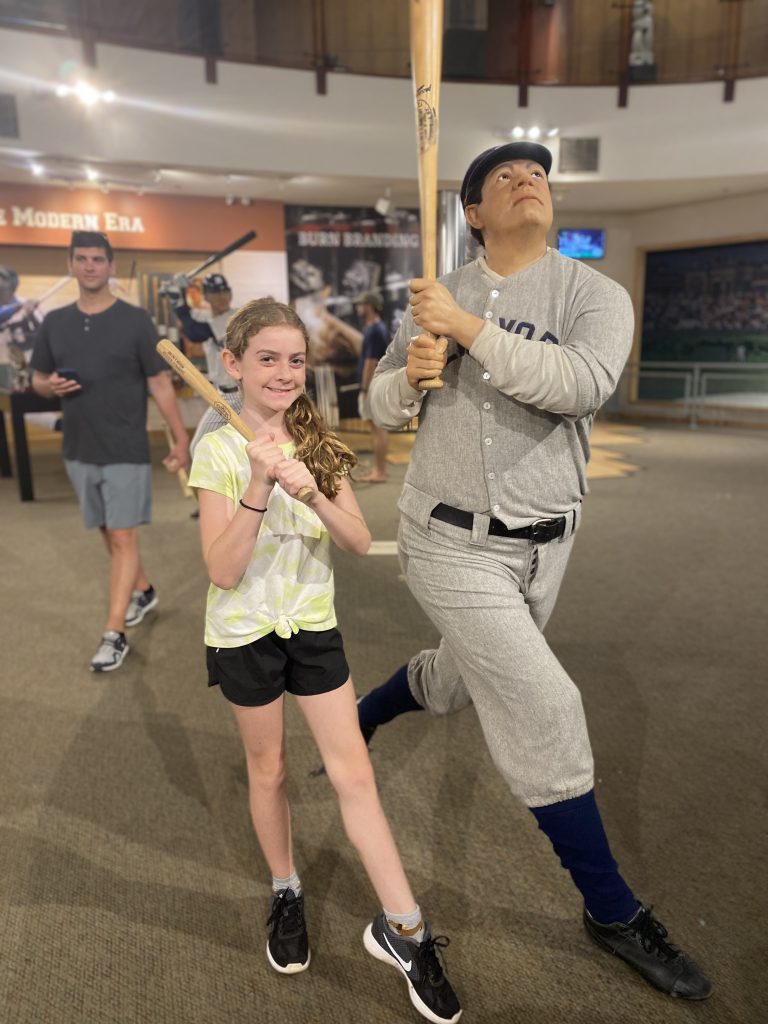
The tour starts with the trees
At first, none of us were super excited to start our tour with a 5-minute film. However, we became captivated as it showed how each tree is hand selected from the company’s expansive forest on the New York/Pennsylvania border and demonstrated how each tree is cut into 37″ billets that are shipped to the factory.
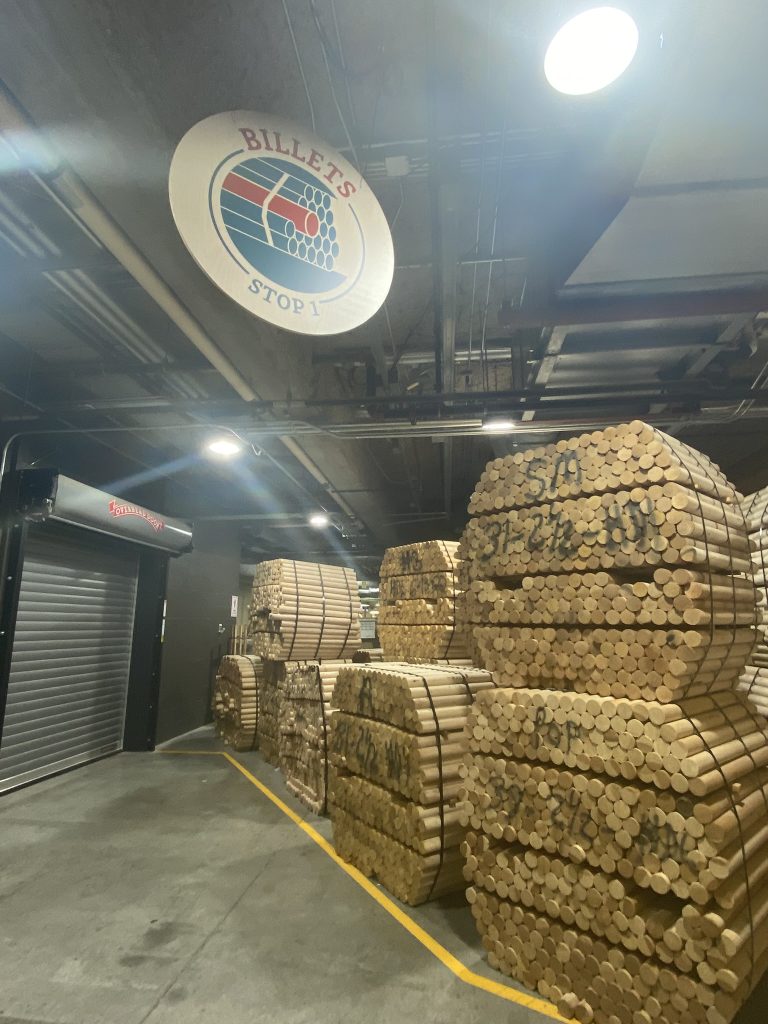
Which wood is best?
The doors opened to reveal the factory alive with buzzing machines, sawdust and the undeniable scent of fresh wood. 90% of sluggers are made of Ash because it’s lightweight and flexible, allowing for the acceleration that gave greats like Babe Ruth and Lou Gehrig their record careers. In recent years, professional players including Barry Bonds have turned to harder, less flexible maple since it’s not as prone to breaking and chipping as Ash. We’re not MLB pros, but birch seemed like the best choice of the three to us. With the flexibility of ash, the lasting power of maple, some say it’s due to gain in popularity.

Machines make the perfect Slugger
Next, we got to see the auto-lathes that make the professional bats at work. Early hand-turned bats could take almost an hour, so we couldn’t believe our eyes as we watched a pro’s bat carved perfectly in under a minute. Amazingly, the CNC machines turning the retail bats were even faster at under 30s a bat!
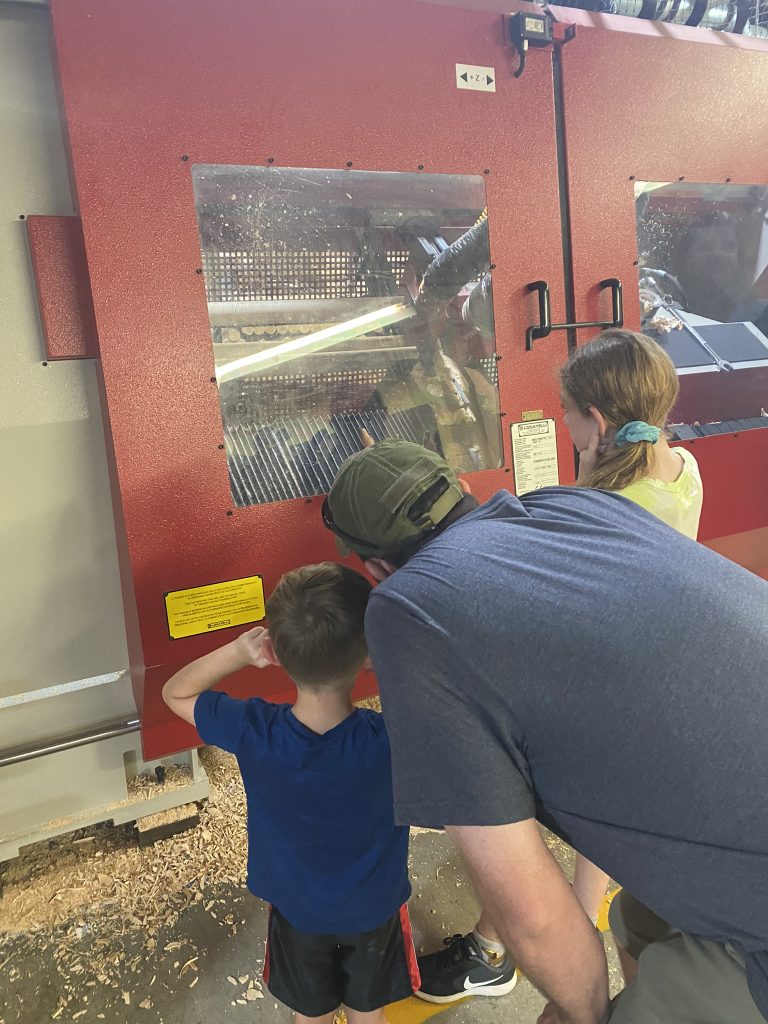
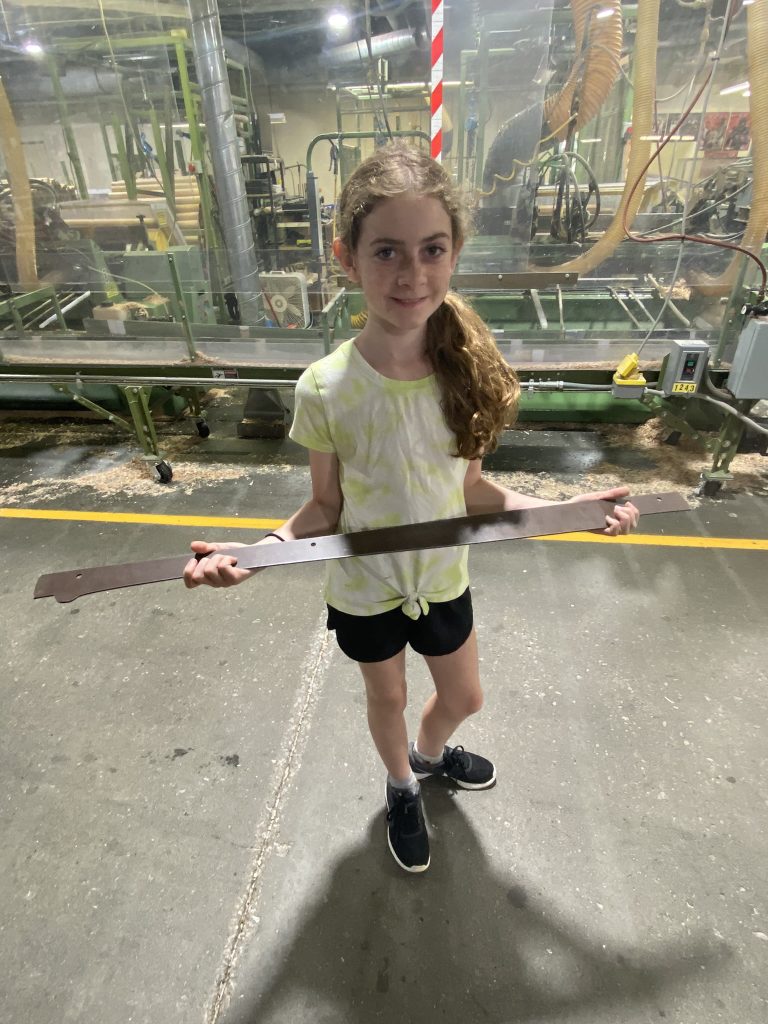
After a little weight loss and polish at the ends, pros often opt for machine pressing or bone rubbing for added hardness. An ink blot adorns the maple and birch bats to prove the straightness of the grain. Then it’s time to get spiffy.
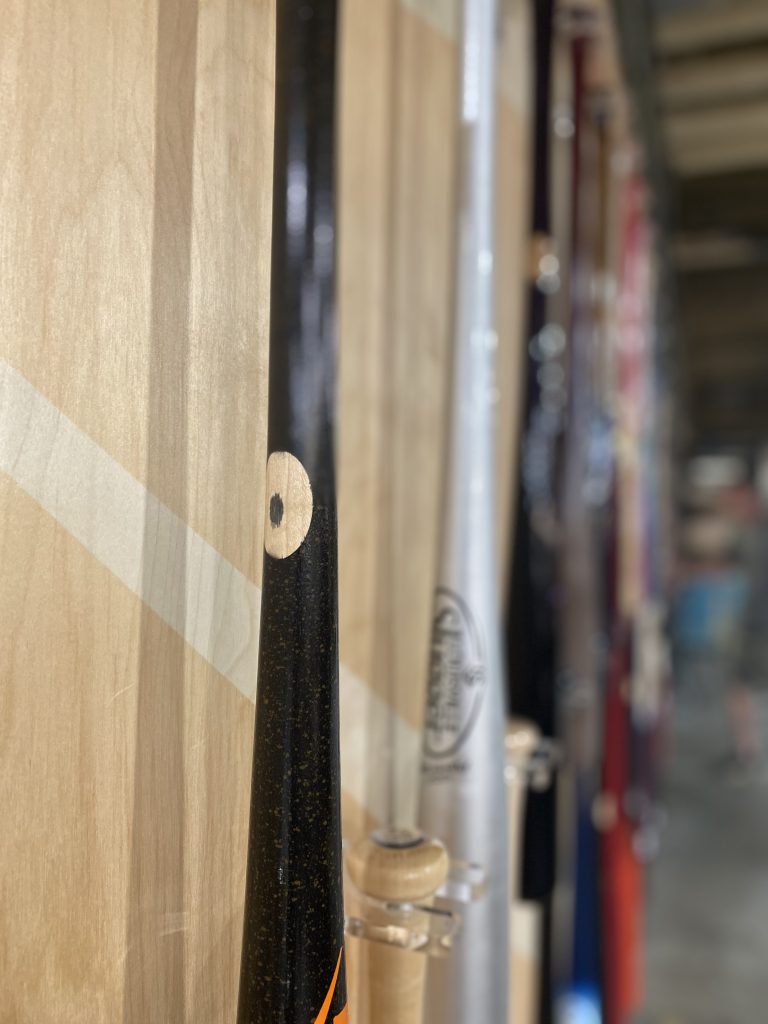
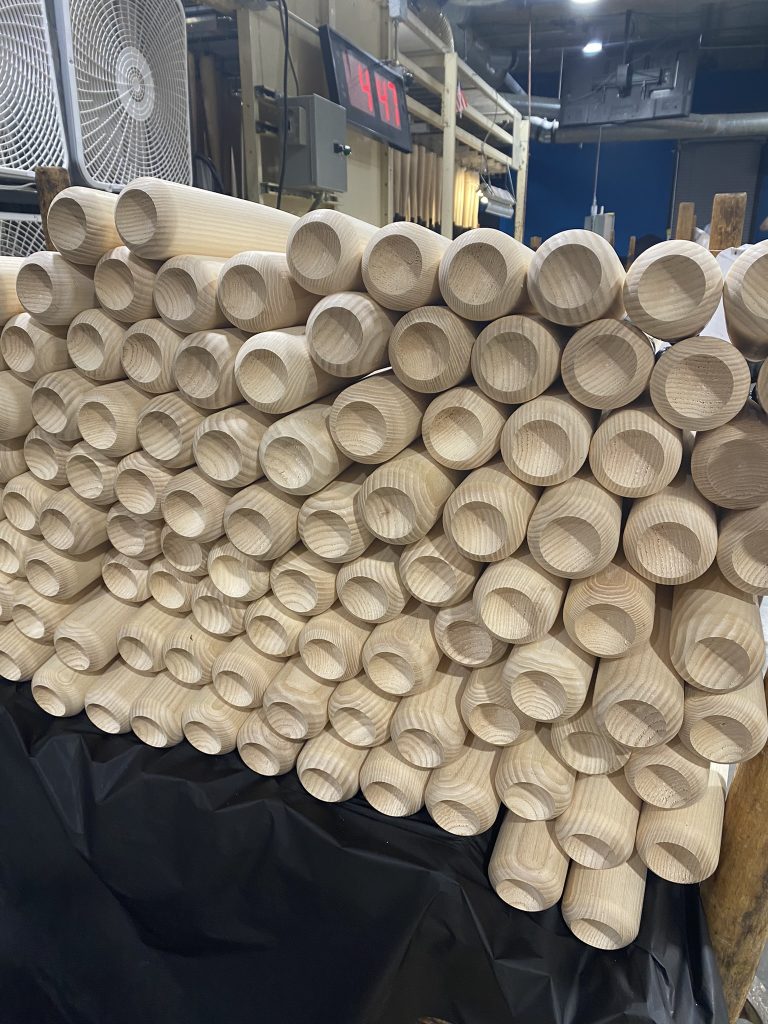
So many fancy sluggers
From flame enhancing the grain, to dipping or even hand painting, the sky is really the limit. We were momentarily hypnotized by dozens of bats being dipped in black paint then hung from a snail-paced conveyer to dry. Brand stamps and personalization can be engraved, burned, foiled or painted on. Apparently, it’s not uncommon to run into a peeking at the progress of their own bat on the production floor!
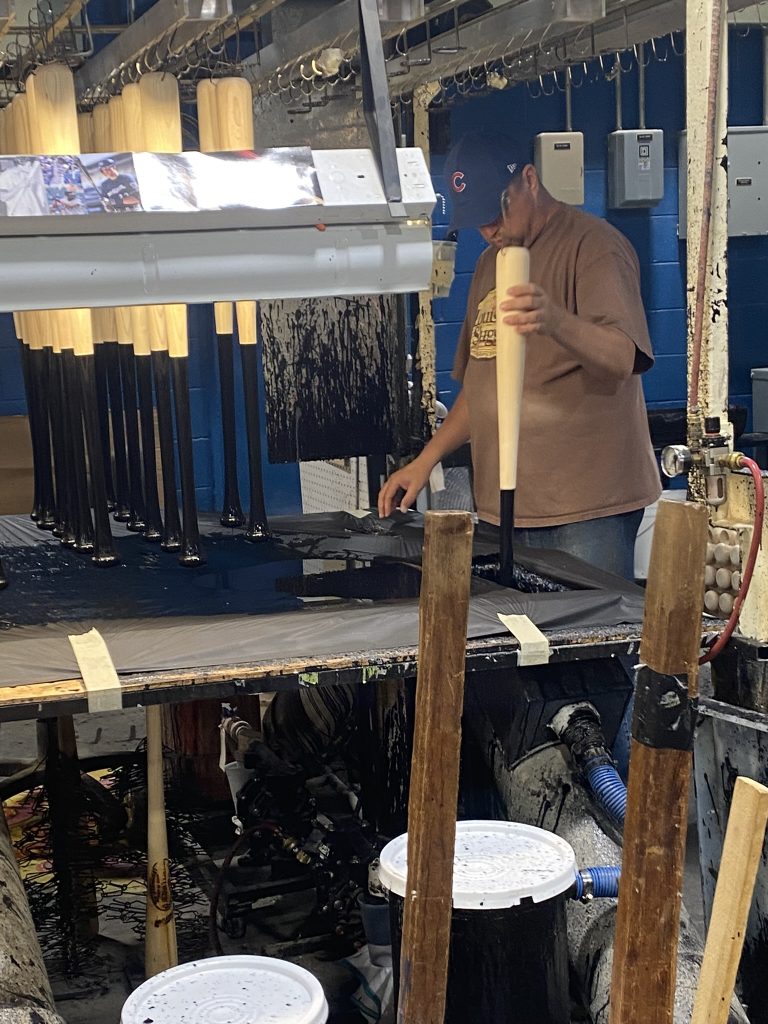
More than one contribution to history
Not only did the Hillerich & Bradsby Co. contribute to America’s pastime, they also supported the war effort. During WWII, they put their bat production on hold and retooled their machinery to produce gunstocks.
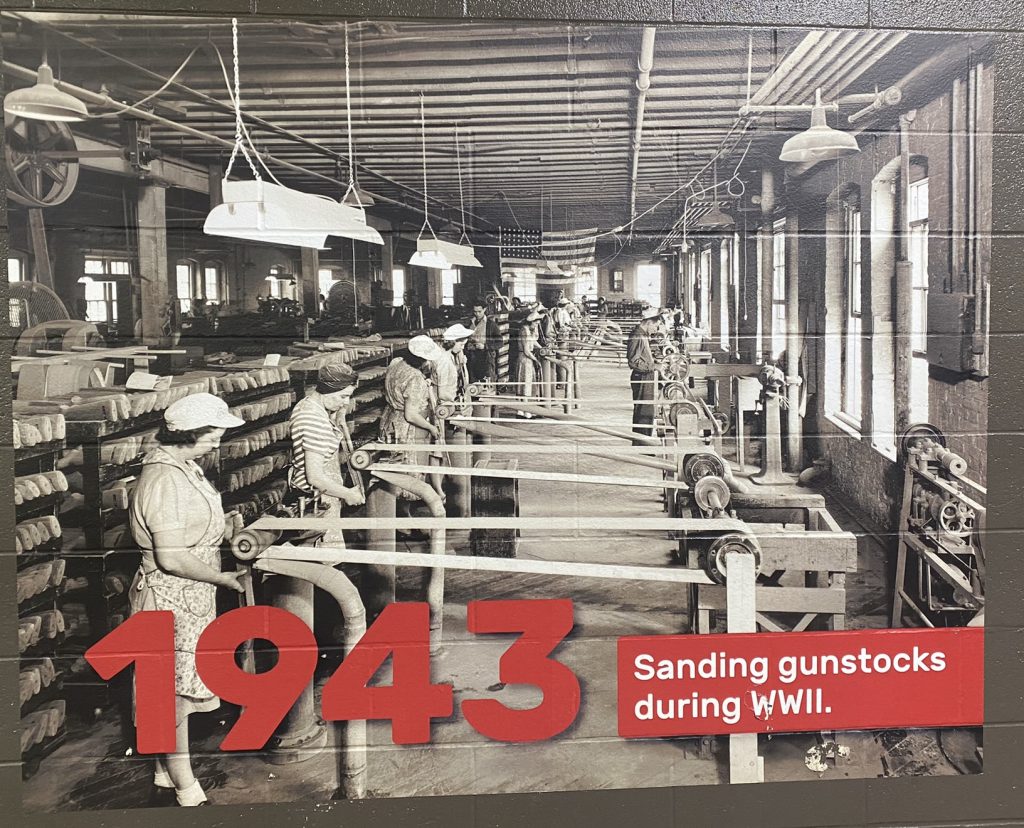
Photo Ops with the Greats
At the end of the tour, the kids were excited to take pics holding their souvenir mini bats with baseball legends Derek Jeter and Babe Ruth. The Signature wall of greats attributing a bit of their success is almost overwhelming. It would have been fun to explore the museum a bit more, but the staff were ready to head home for the night. So we wandered down Main Street to see what else Louisville had to offer. Spoiler alert… quite a lot:)
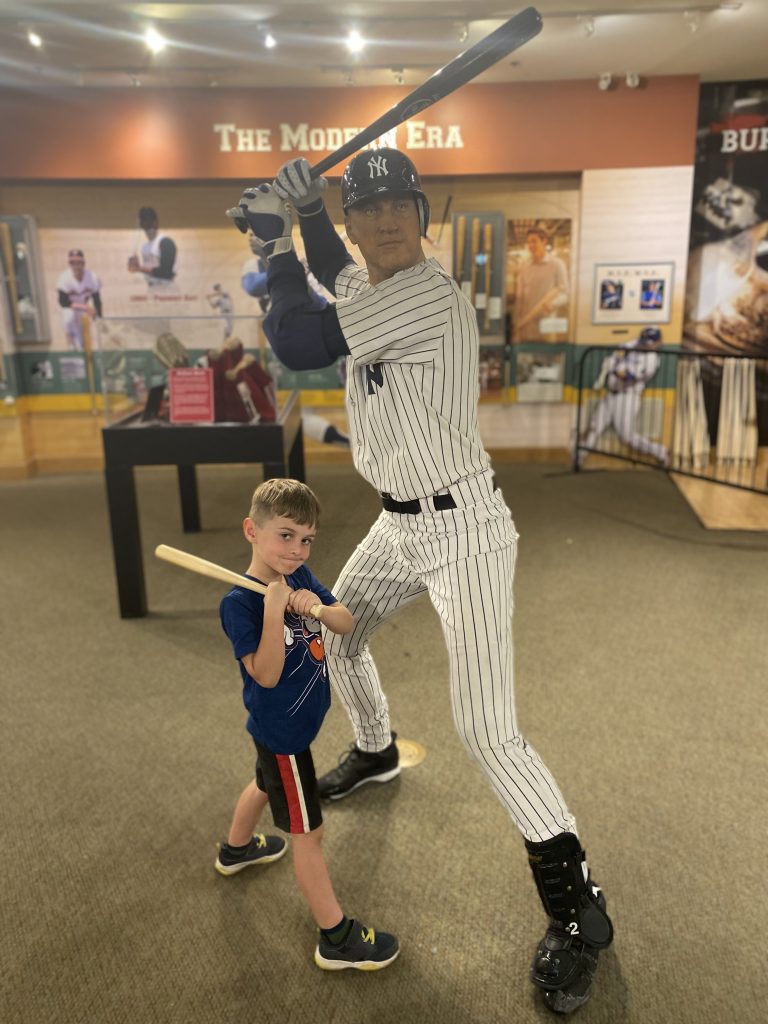


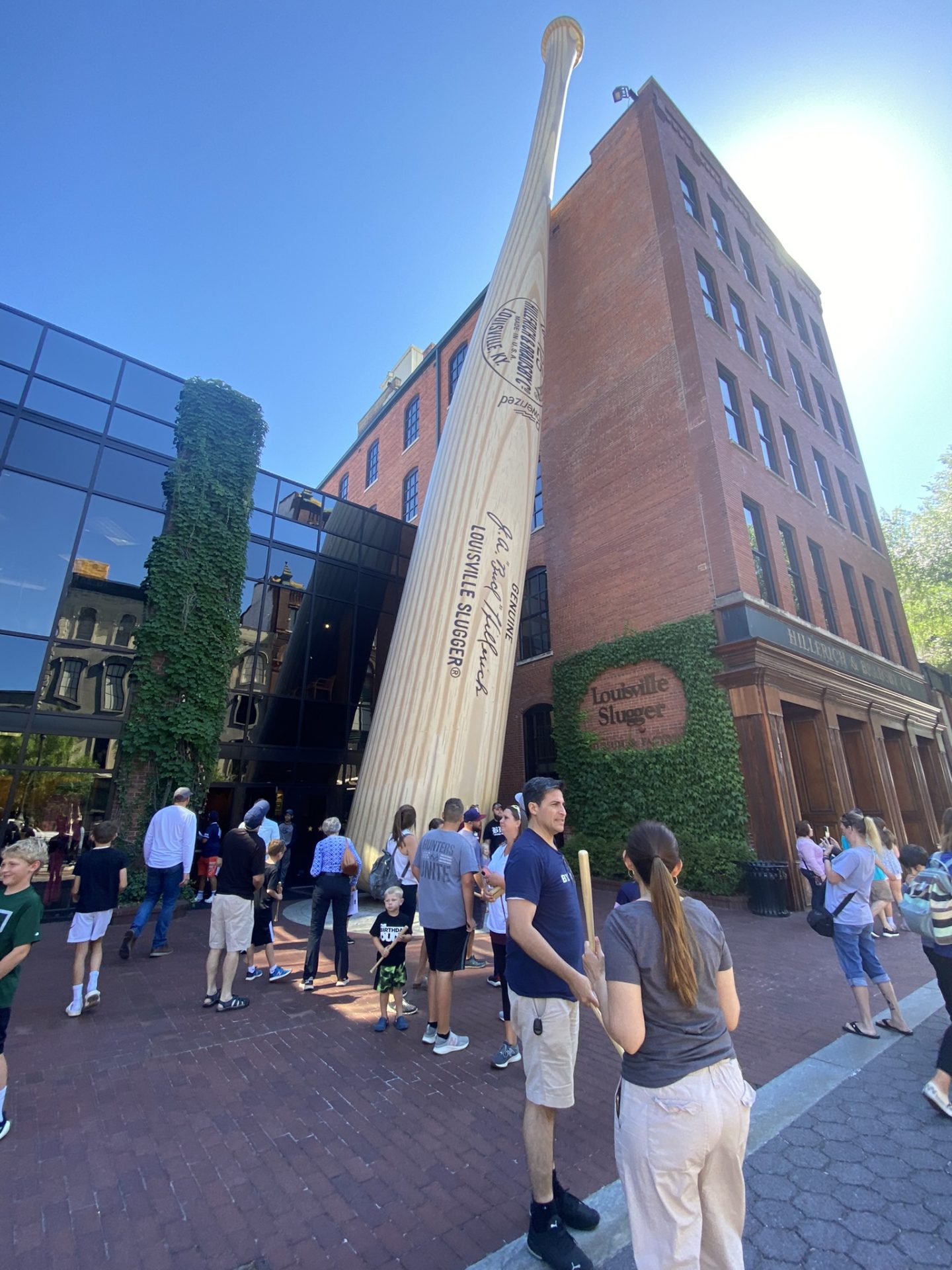



Leave a reply